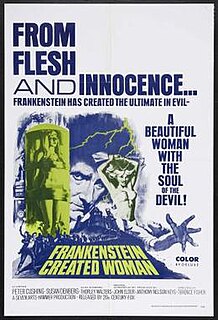Camulus or Camulos is a Celtic deity who was identified with Mars via interpretatio romana. Camulus was an important god of Roman Britain and Gaul, especially among the Belgae and the Remi, a Gaulish people living in the region that is now modern Grand Est around Reims.

Kleve is a town in the Lower Rhine region of northwestern Germany near the Dutch border and the River Rhine. From the 11th century onwards, Cleves was capital of a county and later a duchy. Today, Cleves is the capital of the district of Cleves in the German state of North Rhine-Westphalia. The city is home to one of the campuses of the Rhine-Waal University of Applied Sciences.
Kleve or Kreis Kleve is a Kreis in the Lower Rhine region of northwestern North Rhine-Westphalia, Germany. Neighbouring districts are Borken, Wesel, and Viersen in Germany, and the Dutch provinces of Limburg and Gelderland.
Cleve or Cleves may refer to:

The Duchy of Cleves was a State of the Holy Roman Empire which emerged from the medieval Hettergau. It was situated in the northern Rhineland on both sides of the Lower Rhine, around its capital Cleves and the towns of Wesel, Kalkar, Xanten, Emmerich, Rees and Duisburg bordering the lands of the Prince-Bishopric of Münster in the east and the Duchy of Brabant in the west. Its history is closely related to that of its southern neighbours: the Duchies of Jülich and Berg, as well as Guelders and the Westphalian county of Mark. The Duchy was archaically known as Cleveland in English.

Frankenstein Created Woman is a 1967 British Hammer horror film directed by Terence Fisher. It stars Peter Cushing as Baron Frankenstein and Susan Denberg as his new creation. It is the fourth film in Hammer's Frankenstein series.

Goch is a town in the district of Kleve, in North Rhine-Westphalia, Germany. It is situated close to the border with the Siebengewald in Netherlands, approx. 12 km (7 mi) south of Kleve, and 27 km (17 mi) southeast of Nijmegen.

Operation Veritable was the northern part of an Allied pincer movement that took place between 8 February and 11 March 1945 during the final stages of the Second World War. The operation was conducted by Field Marshal Bernard Montgomery's Anglo-Canadian 21st Army Group, primarily consisting of the First Canadian Army under Lieutenant-General Harry Crerar and the British XXX Corps under Lieutenant-General Brian Horrocks.
Kleve may refer to the following places in Germany:

1. FC Kleve is a German association football club from the city of Kleve, North Rhine-Westphalia very near the Dutch border. The club was established in 2000 out of the merger of VfB Lohengrin 03 Kleve and Sportclub Kleve 63. The footballers are today part of a larger sports club that also has departments for aerobics, gymnastics, Karate, and tennis.

Duchess Marie Eleonore of Cleves was the Duchess Consort of Prussia by marriage to Albert Frederick, Duke of Prussia. She was the eldest child of William, Duke of Jülich-Cleves-Berg and Maria of Austria. She is 7 times great grandmother to Queen Victoria of the United Kingdom.

Nijmegen railway station is the main railway station of Nijmegen in Gelderland, Netherlands. It was opened on 9 August 1865 and is located on the Tilburg–Nijmegen railway, Nijmegen–Venlo railway and the Arnhem–Nijmegen railway. It was extensively rebuilt after the war since the original station was severely damaged by a US bombing raid in February 1944 and during Operation Market Garden in September 1944. Until 1991 there was a line into Germany from here to Kleve.
Knut Kleve was a Norwegian classical philologist and a professor at the University of Bergen and at the University of Oslo. He was particularly known for his efforts on restoration of papyrus fragments from the ancient Roman town Herculaneum.

The Klever Reichswald is an Imperial forest in North Rhine-Westphalia (Germany) between the Rivers Rhine and Meuse at the German Dutch border. The forest is located in the municipal territory of Kleve, Goch, Kranenburg and Bedburg-Hau. It is the largest coherent wooded area of the lower Rhine and the largest coherent public state forest of North Rhine-Westphalia with an area of 51 km2.

The Left Lower Rhine line is a main line on the left (western) bank of the Rhine in the lower Rhine region of the German state of North Rhine-Westphalia, running from Cologne to Cleves (Kleve) and formerly via Kranenburg to Nijmegen in the Netherlands. The Cologne–Krefeld section of the line was opened by the Cöln-Crefeld Railway Company in 1855 and is one of the oldest lines in Germany.

Zevenaar is a railway station located in Zevenaar, Netherlands. The station was opened on 15 February 1856 and is located on the Winterswijk–Zevenaar railway and the Oberhausen–Arnhem railway. There used to be a connection to Kleve (Germany) as well. Since 6 April 2017, the station has a direct train to Germany once again, but this time to Düsseldorf instead of Kleve. The train services are operated by Arriva, Breng and Abellio Deutschland.

Schenkenschanz is a small community in North Rhine-Westphalia, Germany that was incorporated into the town of Kleve (Cleves) in 1969. Schenkenschanz is site of the former Schenkenschans fortress that was of significance in the Dutch Revolt.

Kleve is a railway station in the town of Kleve, North Rhine Westphalia, Germany. The station opened on 5 March 1863 on the Lower Left Rhine Railway. The train services are operated by NordWestBahn.

Kleve is an electoral constituency represented in the Bundestag. It elects one member via first-past-the-post voting. Under the current constituency numbering system, it is designated as constituency 112. It is located in western North Rhine-Westphalia, comprising the district of Kleve.

















